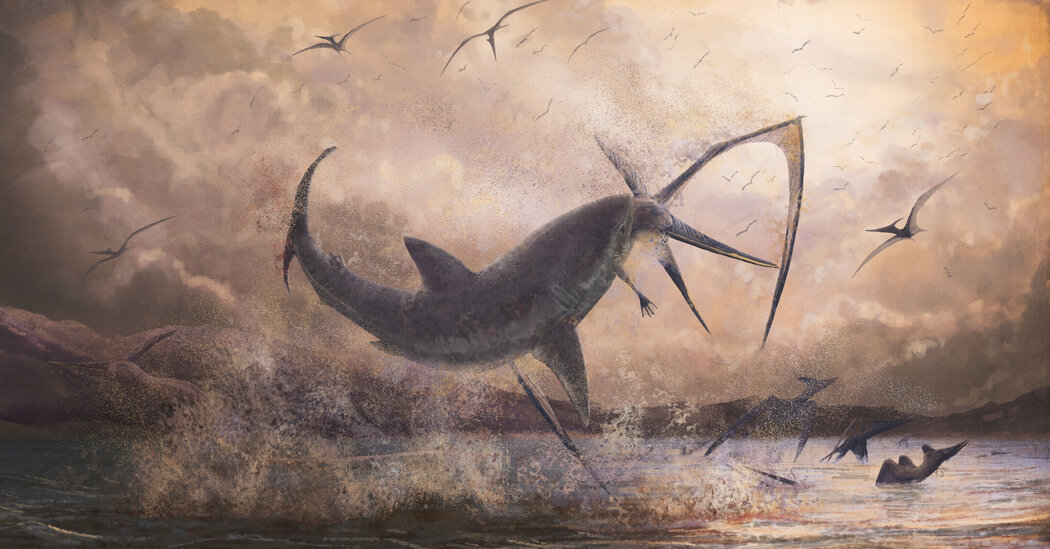More than 100 million years ago, scientists say, warming seas and reduced oxygen may have sent some sharks higher into the water column, where they evolved to be fierce and hungry.
It sounds like something out of a Hollywood film script, but it really happened: Shark-evolution researchers say that increased ocean temperatures more than 100 million years ago may have caused sharks to grow bigger, swim faster and become the powerful predators we know today.
In a paper published last month in the journal Current Biology, scientists reported that they measured fin sizes and body lengths of 500 extinct and living sharks and compared that information with data from the evolutionary shark family tree. Their results indicate that when the ocean got very hot approximately 122 million years ago during the Cretaceous period, some sharks abandoned their habitat on the seafloor and moved up into the open ocean. That ascent may have altered their fin and body structure, which led to changes in their size and ability to swim.
It is a misconception that all sharks are like the bloodthirsty, powerful and streamlined beasts of “Jaws” that swim close to the ocean surface (or in tornadoes and city streets, if you’ve watched “Sharknado”). Most sharks have always been benthic, meaning they’re bottom feeders. Unlike their pelagic — or open water — relatives, benthic sharks don’t need to constantly swim in order to breathe. They can rest on the seafloor.
The need to breathe, however, might have been just the prompt that moved some sharks higher into the water column. Cretaceous ocean bottoms, the authors posit, may have become increasingly oxygen-poor in places. For the ancestors of many modern sharks to survive and eventually thrive, it was time to ditch the sea bottom.
Clues to this habitat shift, and what endured in which environment, are seen in the changing pectoral fins of ancient pelagic and benthic sharks.
“Most of the open-water sharks tend to have elongated fins, and the benthic sharks have stubbier fins,” said Lars Schmitz, a biology professor at Claremont McKenna College in California who is an author of the paper.
